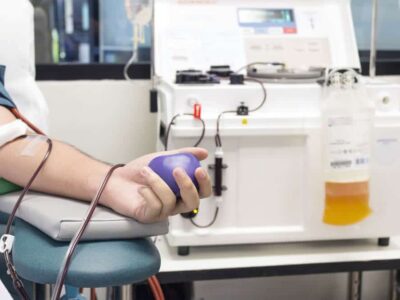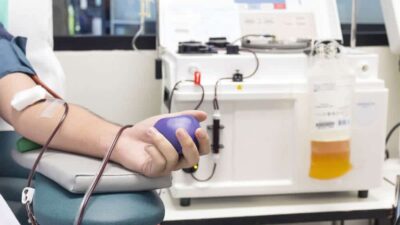
If a woman has been actively trying to conceive for at least a year and has been unsuccessful, she is considered infertile. There are several potential causes for this illness, which affects a large percentage of women. Infertility in women often results from a combination of factors.
- Ovulation disorders: Inability to release a fully developed egg for fertilization due to irregular or missing ovulation. Polycystic ovarian syndrome (PCOS), hormonal imbalances, and thyroid abnormalities are all examples of conditions that might interfere with regular ovulation.
- Second, a problem with the fallopian tubes may stop a fertilized egg from implanting in the uterus if it is blocked or damaged. Possible causes include infections, prior operations, endometriosis, and pelvic inflammatory disease (PID).
- Third, problems with the uterus or cervix might make it difficult for an embryo to implant or for sperm to reach the egg. Fibroids, polyps, structural abnormalities, and difficulties with cervical mucus are all examples.
- Age-related factors diminish fertility because, as women age, their egg supply and quality drop. The odds of a successful pregnancy diminish with a mother’s age, and that age is commonly considered to be 35 or above.
- Usually affecting the ovaries, fallopian tubes, and pelvic region, endometriosis develops when the tissue that typically lines the uterus grows outside of it. Inflammation caused by endometriosis may disrupt reproductive organ function, which can lead to infertility.
- Scar tissue or adhesions in the pelvis may occur as a consequence of pelvic infections, operations, or diseases like endometriosis. Adhesions may prevent the reproductive system from working normally.
- Ovulation and fertility may be disrupted by hormonal imbalances, namely in the hormones that control the menstrual cycle. These include luteinizing hormone (LH), follicle-stimulating hormone (FSH), estrogen, and progesterone.
- Polycystic ovarian syndrome (PCOS), thyroid problems, autoimmune illnesses, diabetes, and obesity are among medical factors that have been linked to female infertility.
- Lifestyle factors number nine on the list, and they include things like being severely underweight or overweight, smoking, drinking excessively, and abusing drugs.
Consultation with a healthcare professional or fertility expert who can do thorough examinations, identify the underlying cause(s) of infertility, and offer effective treatment choices is essential for women having problems conceiving.
Infertility: 5 Symptoms That Women Often Notice
- Millions of women throughout the globe struggle with infertility, making pregnancy and AIchildbirth very challenging.Since infertility may result from a variety of factors, being able to spot its early warning signals is crucial. Women experiencing these symptoms should make an appointment with a doctor as soon as possible so they may discuss possible treatments in an open and honest manner. Menstruation cycles are considered normal if they occur between 21 and 35 days apart.
- Dysmenorrhea, a disorder that causes painful periods and heavy bleeding, may be an indication of infertility. Endometriosis, fibroids, and pelvic inflammatory disease (PID) are all potential causes of painful periods. If one of these conditions is present, the reproductive organs may not function as well, or the ovaries may have problems releasing eggs.
- Third, if your hormones are out of whack, it might throw your reproductive system into a loop, which could result in infertility. Changes in libido, sudden weight gain or loss, acne, excess facial or body hair, and mood swings are all signs of a hormonal imbalance, which can be caused by conditions like polycystic ovary syndrome (PCOS), thyroid disorders, or disorders of the adrenal glands.
- Female fertility declines significantly with age due to the effects of diminished ovarian reserve. Ovarian reserve, the number and quality of eggs a woman has, decreases with age. Trying to conceive for six months or more after turning 35 may be an indication of diminished fertility. Infertility treatment options like in vitro fertilization (IVF) from IVF doctors in Mumbai. It may become necessary to go to an IVF centre,if a woman has a low ovarian reserve and is unable to conceive without medical help.
- A history of recurrent miscarriages, which is defined as the loss of three or more pregnancies in a row, may be indicative of a reproductive problem. Abnormalities in the mother’s genes, hormones, the uterus, or the immune system may all lead to a miscarriage. If you’ve had several miscarriages, you should consult a doctor to find out why that keeps happening and what may be done about it.
- Keep in mind that every woman’s reproductive path is different, and that these symptoms may not always imply infertility on their own. However, it is crucial to see a healthcare provider or fertility expert if you have any of these symptoms or have any concerns about your fertility. They could take a look at your unique circumstance, run any appropriate diagnostics, and provide advice.
In conclusion, early diagnosis and efficient treatment of infertility in women requires familiarity with the prevalent signs of infertility in women. Seek medical attention if you have painful periods, hormone irregularities, issues connected to your age, or have had miscarriages in the past. Women’s chances of becoming pregnant and realizing their dream of motherhood may be improved by quick treatment of infertility difficulties.











